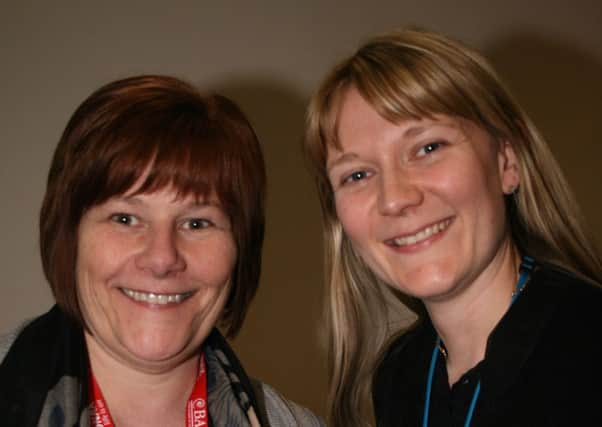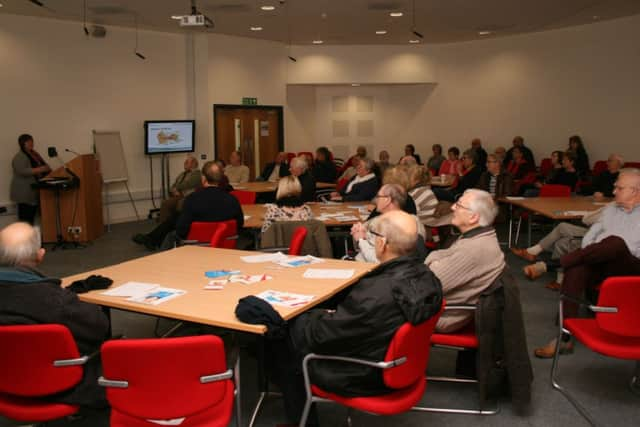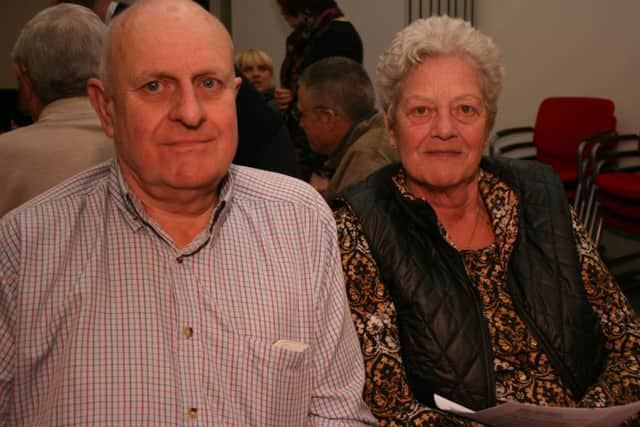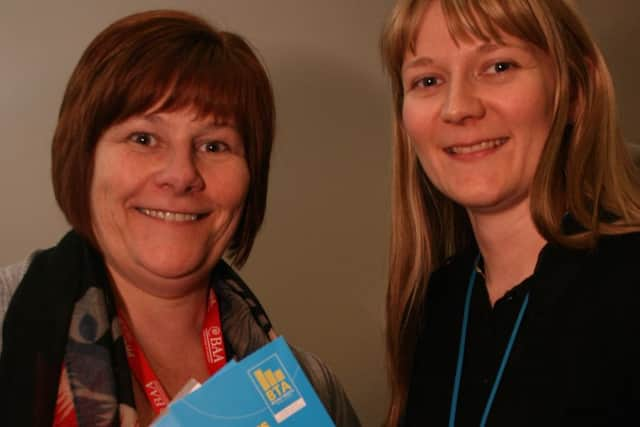Coldplay star Chris Martin reveals he suffers with tinnitus during Tinnitus Awareness Week as King’s Mill Hospital launches event to highlight condition supported by BTA


This condition, which 10 per cent of the population suffers with, is little understood and very rarely spoken about.
Tinnitus Awareness Week, which was held last week, was launched by the BTA (British Tinnitus Association) to bring the condition out of the shadows and into open discussions.
Advertisement
Advertisement
According to the BTA, tinnitus is defined as a noise in the head or ears which has no external source, known cause, or current cure.


It can occur literally overnight, be brought on through illness, as a side effect to some medicines or from extended exposure from industrial noise.
But the reality is nobody really knows.
I went along to a public event held at King’s Mill Hospital, organised by the audiology department as part of the awareness week.
The trust’s clinical lead for tinnitus, Michelle Booth, presented facts and figures, imparted her knowledge and experience of the condition and spoke with sympathy to the group of more than 50 people who attended.


Advertisement
Advertisement
“Tinnitus is not a disease; it is a symptom,” said Michelle. “We could have filled this room twice over today which gives us some indication of how many people have it.”
Michelle explained the Latin origin of the name-to ring-but added that actually tinnitus is not simply a ringing in the ear.
“I could tell you 50 different descriptions of the noises that people hear which is due to tinnitus and there are probably many more,” said Michelle, who has worked in audiology for more than 20 years and is lucky not to have the ‘symptom’.
It is believed that tinnitus is due to damage to the hair-cells within the inner ear which leads to an upset or alteration in the tiny electrical signals that pass up the auditory nerve to the brain.


Advertisement
Advertisement
This new pattern of electrical signals may be recognised by the brain as a sound. The sound itself is as individual as the person suffering with it, but common descriptions include: a whistle, a whine, a high-pitch ringing or even a buzzing.
Even though the number of people who have it is high, the majority is not bothered by it and only a small proportion seek medical help and advice.
“It is these people that we see in the clinic,” added Michelle. “It can have an impact on people’s lives if they are struggling to sleep because of it or are having problems concentrating and it starts to affect how they do their job.
“It can become a vicious circle as once sufferers are aware of the noise they then listen for it and the more they hear it.
“Tinnitus can make people anxious and depressed.”
Advertisement
Advertisement
The audience nodded in agreement and the effects Michelle is talking about are obviously common amongst the gathered group.
But they, and indeed myself, were there to find a solution to the annoying, unwanted, uninvited noise in our heads in which there seems no escape.
However there isn’t a magic pill, hi-tech invention or state-of-the-art solution. The only answer comes in the form of management and counselling.
“Through our clinic we can give patients support for as long they need it,” added Michelle who works with specialist audiologist, Cheryl Gamlin.
Advertisement
Advertisement
“We can suggest stress management techniques as well as demonstrate sound enrichment devices which divert attention from the tinnitus by introducing other calming sounds.”
Another way sufferers can access help is through the recently formed Tinnitus Support Group (TSG) at the hospital.
The group has been set up through Michelle and Cheryl but is patient led.
“It is the chance for patients to get together and share their common experiences,” said Cheryl. “It’s difficult for non-sufferers to understand.
Advertisement
Advertisement
“Partners of patients can also come a long as a way of finding out more in order to offer greater support.”
David and Susan Sparkes of Annesley have both attended the TSG after David got tinnitus following a serious illness.
“I had pancreatitis and although the anti-biotics I was given saved my life, they left me with tinnitus,” said the 69 year-old, who wears hearing aids to boost high frequency sound which also helps reduce the tinnitus. “It is worse at night when it is quiet and if I wake up in the night I struggle to get back to sleep.”
Susan has also attended the group. She added: “I want to understand more so I can help. I know when it is troubling him as he gets snappy and he is less tolerant of certain noises but he doesn’t complain.”
Advertisement
Advertisement
Retired police officer, Julia Hodson, is a member of the support group, a board member of the BTA and tinnitus sufferer.
“Two years ago I just woke up one morning with it,” said Julia, of Ravenshead. “I didn’t know anything about tinnitus so researched it and as a result became a board member for the BTA.”
This is a charity that offers support and is committed to help fund research.
“Both the BTA and the hospital group give you reassurance that you are not alone or going bonkers,” added Julia, 58, who has learned to live with it but has been forced to make changes.
Advertisement
Advertisement
“There are places I try and avoid like noisy pubs but it is the silence I miss most.
“I really valued silence and knowing I will never have it again is hard to accept.”
For more information contact BTA: 0114 250 9933 or visit www.tinnitus.org.uk.
BTA freephone helpline: 0800 018 0527.
King’s Mill audiology department: 01623 622515 ext.3574/3036